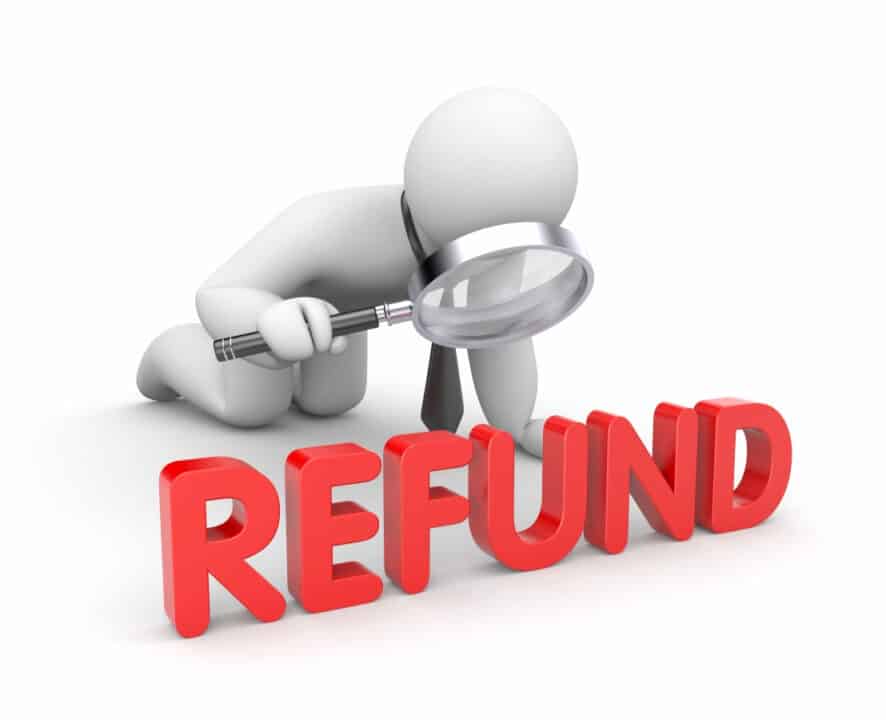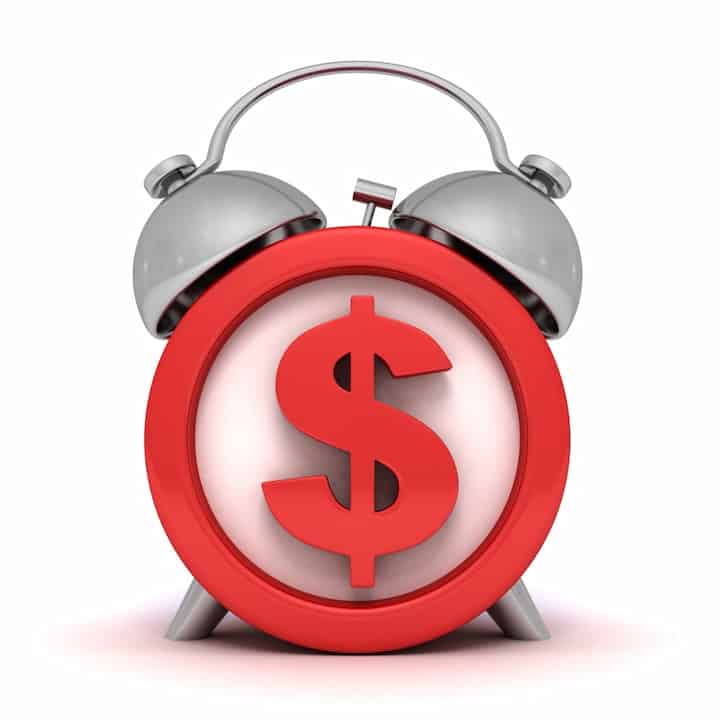Have you ever had an unexpected payment leave your account, plummeting your balance below zero? Have you ever been hit with an NSF fee that you weren’t expecting?
With the rising cost of living in Canada, it is no surprise that people are seeing a negative impact on their finances. More people are finding their balance dropping below zero. This can result in expensive fees. This is especially true if they had insufficient funds to finance a pre-arranged transaction.
Even those who are trying to manage their money effectively and be financially smart can end up in a situation where a cheque or pre-authorized transfer cannot be funded by the money in their account. In this situation, Canadian banks, including RBC, will charge you a fee of around $45 for having non-sufficient funds in your account.
The Royal Bank of Canada (RBC) is the largest bank in Canada by market capitalization. Their customers are regularly charged NSF fees when they have insufficient funds in their accounts. Today, we are going to examine these fees closely and look at ways to avoid huge financial penalties.
What is an NSF Fee? Non-Sufficient Fund Fees in Canada
Non-Sufficient Funds refers to a chequing account that has an insufficient amount of money to finance any transactions. If a transaction or withdrawal takes place and the balance of the account is too low to cover the amount, you will likely be charged a fee.
There are several things that can cause a customer to be charged an NSF fee, including:
- A cheque that exceeds the account balance. This is also known as a bad or bounced cheque.
- Pre-authorized debits
- Electronic or automatic bill payments
Like most Canadian banks, the Royal Bank of Canada (RBC) charges a fee if you do not have the required balance to cover a payment. The NSF fee is currently set at $45. So, even if the cheque request or pre-arranged transaction would only take you a couple of dollars below zero, you will still be hit with the $45 charge.
Even the most financially prepared people encounter unexpected bills. This can then take them dangerously close to their overdraft. If your balance is low and you do not have enough money to cover a bill payment or bounced cheque, your transaction will be declined. You will then be charged an NSF fee.

Chequing Account NSF Fees
If you do not have enough money in your chequing account to pay an outgoing cheque or cover a debit transaction, your bank account will fall into a negative NSF status.
In this situation, RBC is likely to do one of two things:
- Reject the payment and charge you the NSF fee of $45.
- Cover the payment and charge you an overdraft fee.

Banks, including RBC, hit you with an NSF fee as a deterrent. They do not want your chequing account to be overdrawn, so charge high fees to discourage overspending. If a cheque or payment bounces, not only will your account balance be $45 less, you will also still the outstanding cheque balance.
For example, if your balance is $200 and a $300 cheque bounces, your bank will charge a $45 fee. This means that your balance is now $155, plus you still owe the original $300.
Do NSF Fees Affect Your Credit Rating?
Although RBC is not likely to report a bounced cheque or failed payment, NSF charges could still affect your credit rating.
If a pre-arranged debit or a bill payment is missed, the company that you owe the money to may report the missed payment. This will then affect your credit score. If you do not pay off the outstanding debt, or the NSF fee quickly, this could have a further impact on your score.
Bad credit or the involvement of debt collectors could stay on your credit file for up to 6 years.
Crucially, if you consistently write cheques that the payee is unable to deposit, you may be accused of knowingly writing bad cheques. This is a criminal offence.

What is Overdraft Protection?
To prevent NSF fees, you can organize overdraft protection for your account. Overdraft protection involves the bank funding the cost of the transaction that takes you into your overdraft. This allows you to avoid a high NSF fee and the late payment penalty you may receive if your cheque bounces.
An overdraft is similar to a line of credit, so you may need a high credit score or good standing with your bank to be approved for one. As your bank is lending you the money to cover your transactions, you will likely be charged a monthly fee. Your bank may also charge a fixed interest rate on the overdrawn balance.
You will likely have a pre-agreed limit of how much you can be overdrawn. This may come with a fixed monthly fee. Alternatively, you can choose a pay-per-use overdraft.
RBC offers overdraft protection of $500-$5,000 for regular accounts and up to $10,000 for VIP accounts. They charge a monthly fee of $5, plus the overdraft interest fee. The interest is currently set at 22% APR. The interest fee is waived for VIP accounts.

NSF Fees vs. Overdraft Protection
For those who may be prone to over-spending, implementing overdraft protection may make the most financial sense for you. If you do not have overdraft protection, every time the funds in your account are too low to process a payment, RBC will charge you the $45 fee. So if two cheques bounce in the same month, you will have to pay $90 in fees and see your credit rating negatively impacted.
Overdraft protection helps you to avoid NSF fees and prevent your rating from dropping. Although overdraft protection is not free, the costs are likely to be much lower.
However, if you are likely to consistently have enough money in your account to cover your bills and outgoing cheques, it may not be cost-effective to pay a monthly overdraft fee for a service you are not using.
How to Get Your Bank to Waive Your Non-Sufficient Funds (NSF) Fee
If you have good standing with your bank or financial institution you may be able to have your NSF fee waived. This is much more likely if it is the first time you have incurred a fee.
You may be more likely to have the fee waived if:
- You are a long-term customer.
- You usually make all of your payments on time and have a previously good history with the bank.
- You have multiple bank accounts with them or use another service, such as a credit card, mortgage or loan.
Banks, including RBC, are more likely to waive the fee to retain your business, rather than risk losing you as a customer. When requesting that your bank waives the fees, you can call them or visit your branch directly.

How to Get Overdraft Fees Refunded Quickly
Similar to NSF charges, banks could also refund overdraft fees. Unless you are a VIP customer, overdraft fees will not be free and you may be charged a monthly fee or a per-use fee. These fees can quickly add up.
Both personal account and business account customers can write cheques and set up direct debits free of charge. However, sometimes an unforeseen financial situation occurs. unexpectedly plunging you into your overdraft. Being in the negative will result in fees and charges. In this situation, you may be able to get the money refunded.
However, you may only successfully receive a refund if:
- You do not use your overdraft service frequently.
- You are a good standing customer with the bank.
- You are contesting the payments or the transfer that took you into your overdraft.
You should request your refund as promptly as possible. Call the bank or visit your branch as soon as you notice the charges. It may help to print off a bank statement from your computer or an ATM. Explain the situation clearly and calmly, outlining the reasons why you should be given a refund.

How to Avoid NSF Fees
The easiest way to reduce the fees or penalties is to avoid receiving them completely. The best ways to avoid incurring NSF fees are:
- Keep track of your spending
Checking your account frequently and tracking your spending can be extremely effective. It may be that some cheques do not cash immediately or a debit transaction may not leave your account straight away. By being aware of your spending, you will know the true balance of your account, not the one that your online banking, or the ATM, states.
- Have a financial cushion
Canadian cheques are valid for up to six months. This means that if you write a cheque, you’ve got not guarantee the payee will cash it immediately. By having an emergency savings fund in your account, you can prevent unexpected payments from taking you below zero.
- Set a banking alert
To stop the need for constantly checking your online banking, you can set up automatic alerts. The alert will notify you if the money in your account drops below a specific amount, making you aware that you are at risk of incurring a fee. This gives you the opportunity to transfer funds into your account.
- Add overdraft protection
Both personal and business customers can add overdraft protection. This will prevent you from being hit with huge fees if you have insufficient funds.

The Bottom Line
RBC, like most Canadian banks, charges a high NSF fee every time your account has insufficient funds to complete a transaction. This fee is currently set at $45. Unfortunately, you could be charged more than once for the same bounced cheque.
There are several things customers of RBC can do to ensure they are not surprised by an NSF charge. By implementing some simple changes to your financial habits and placing some protective measures on your account you can safeguard your money and your credit rating.